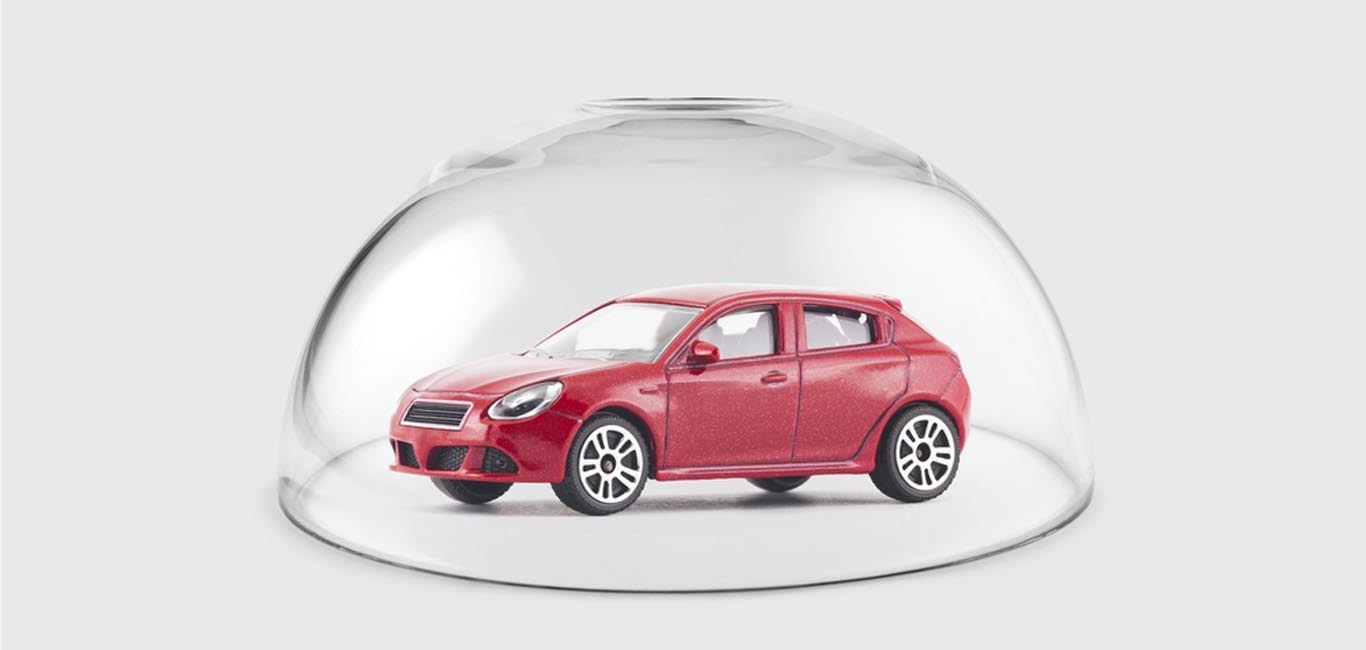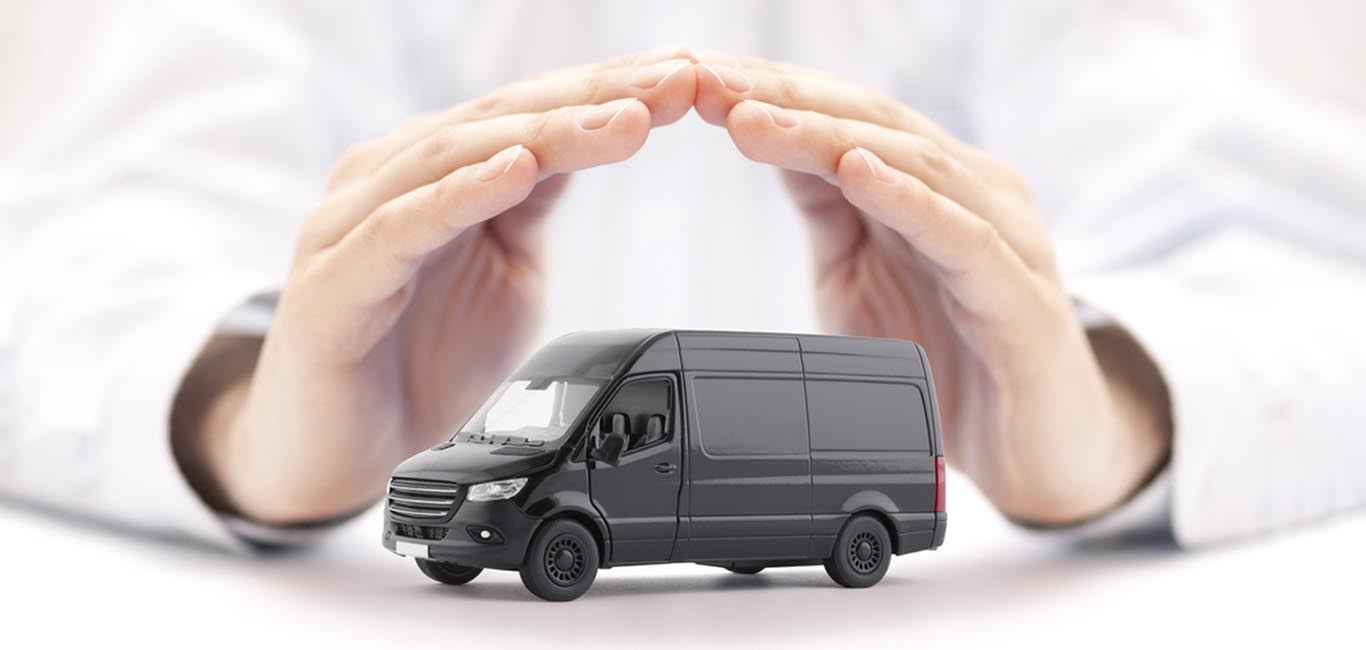In today’s challenging economic climate, many people are exploring new ways to earn money, often utilizing their vehicles for commercial purposes. Ridesharing platforms like Uber, Careem, and InDrive have allowed individuals to share their rides and generate extra income.
However, one frequently arises question is whether you can use your insured car for commercial use. In this comprehensive blog, we will explore the concept of commercial vehicle use, the implications for insurance coverage, and how you can ensure adequate protection for your vehicle in both personal and commercial contexts.

What is an Insured Car?
An insured car refers to a vehicle with an active car insurance policy. Car insurance is a contract between the car owner and an insurance company, where the owner pays regular premiums in exchange for financial protection in case of damage, accidents, theft, or other covered events involving the insured vehicle.
When a car is insured, the owner has taken the necessary steps to mitigate the potential financial risks of owning and operating a vehicle. In case of any accident or damage, the insurance policy can provide coverage for repairs or replacement, medical expenses, legal liabilities, and other benefits outlined in the policy.
What Constitutes Commercial Use of a Vehicle?
Commercial use of a vehicle entails receiving payment for providing services. For example, it falls under commercial use if you use your car to offer rides for compensation, such as providing pick-and-drop services during your free time.
On the other hand, if you occasionally give a friend or a stranger a ride without receiving any payment, that would not be considered a commercial use. Essentially, commercial use involves using your vehicle intentionally to generate income.

Insurance Coverage for Commercial Use
Using your regular vehicle insurance policy to cover commercial use is not permitted and can lead to coverage denial in the event of an accident. Most insurance policies explicitly state that they do not provide coverage for commercial use.
The rationale behind this is the increased risk associated with commercial driving. Commercial drivers tend to have a higher probability of accidents or incidents like robberies due to frequent interactions with the public and other vehicles.
In contrast, regular vehicle use typically involves commuting to and from work, which tends to be more predictable and familiar with the option to choose a preferred route for safety purposes.

Obtaining Dual Insurance Coverage
If you wish to use your vehicle for personal and commercial purposes, securing separate insurance policies is essential to ensure adequate coverage. Some insurers offer additional coverage options specifically designed for drivers who want to use their vehicles for commercial use.
These policies come with higher premiums but provide added protection tailored to hybrid usage scenarios. Discussing your requirements with your insurer before making a decision is crucial.
They can guide you in choosing between a single policy with added commercial coverage or two separate policies. The cost is generally comparable, regardless of whether you opt for a single or multiple policies with extended coverage.
Conditions for Obtaining Dual Insurance Coverage
Informing the Insurance Company:
To obtain dual insurance coverage in Pakistan for personal and commercial use of your vehicle, it is crucial to inform your insurance company about your intention to engage in commercial activities with your vehicle.
This disclosure allows the insurance provider to assess the risks associated with your commercial use and determine the appropriate coverage options.
Review Policy Restrictions:
Insurance providers in Pakistan may have specific restrictions or exclusions on the types of commercial activities they cover.
It is essential to keenly go over the terms and conditions of the policy to know any limitations or exclusions related to commercial use. This will help you ensure that the policy aligns with your specific commercial activities and provides the necessary coverage.
Premium Adjustment:
You can expect higher premiums when obtaining dual insurance coverage than a standard personal insurance policy. Insurance companies in Pakistan generally adjust the premium based on factors like the level of commercial use, estimated mileage, type of commercial activities, and associated risks. Be prepared for the increased cost of premiums for the added commercial coverage.
Consultation with the Insurance Provider:
Discuss your requirements and options with your insurance provider before making a decision. They can provide valuable guidance on choosing between a single policy with added commercial coverage or two separate policies. By understanding the available options and their associated costs, you can make a decision as per your specific needs and budget.
Tailored Protection for Hybrid Usage:
In some cases, insurance companies in Pakistan offer additional coverage options specifically designed for drivers using their vehicles for personal and commercial purposes. These policies provide tailored protection for hybrid usage scenarios.
While these policies come with higher premiums, they offer comprehensive coverage that addresses the risks of using a vehicle for commercial purposes.
Comparable Costs:
Whether you opt for a single policy with extended coverage or multiple policies for personal and commercial use, the overall cost is generally comparable.
Insurance companies consider the combined risk factors associated with personal and commercial usage when determining the premiums. Therefore, the cost of obtaining separate policies should be similar to that of a single policy with additional commercial coverage.
By following these conditions and consulting with your insurance provider, you can navigate the process of obtaining dual insurance coverage in Pakistan. This ensures that you have the necessary protection for your vehicle’s personal and commercial use, giving you peace of mind while engaging in commercial activities.
Conclusion
While it is beneficial to use an insured vehicle for commercial purposes to earn extra income, it’s vital to understand the limitations of your regular vehicle insurance policy. Commercial use of your car requires separate coverage to ensure you are adequately protected in case of accidents or other incidents.
By purchasing a commercial insurance policy or adding commercial coverage to your existing policy, you can have peace of mind while using your vehicle for both personal and commercial purposes. Remember to consult with your insurer to explore the options and make an informed decision about the best insurance coverage for your specific needs.
Some Important FAQs
What Factors Impact the Price/Premium of Car Insurance?
Several elements can affect the price of your car insurance premium, including:
- The total value of your car
- Make and model of your car
- Parking and usage areas of your car
- Your driving history
- The estimated insurance amount for your car
- Year of manufacturing of your car
- Whether your car is equipped with a tracker device
Does the Policy Provide Coverage When Multiple People Drive the Same Car?
Having multiple drivers for a vehicle is generally not a problem and car insurance coverage is provided regardless of the specific people driving them. However, when applying for an insurance policy, it’s important to inform the insurance company about the number of people who usually drive the car and in which areas to ensure proper coverage.
Do Insurance Companies Offer Countrywide Coverage?
While insurance companies offer car coverage, most do not provide nationwide coverage, and this is because the majority of people do not require it. You can opt for it if you extensively travel by road and require nationwide coverage. However, it’s important to note that nationwide coverage may increase your premium and involve specific risks and clauses associated with highway driving.
I want to insure my car for ride-sharing or rental purpose. What are the special requirements for this?
Insuring your car for ride sharing or rental purposes is possible, but the premium values will differ due to the risks involved compared to a car for personal use. Discussing your specific requirements with your insurance provider and negotiating for a better premium that aligns with your needs is recommended.





